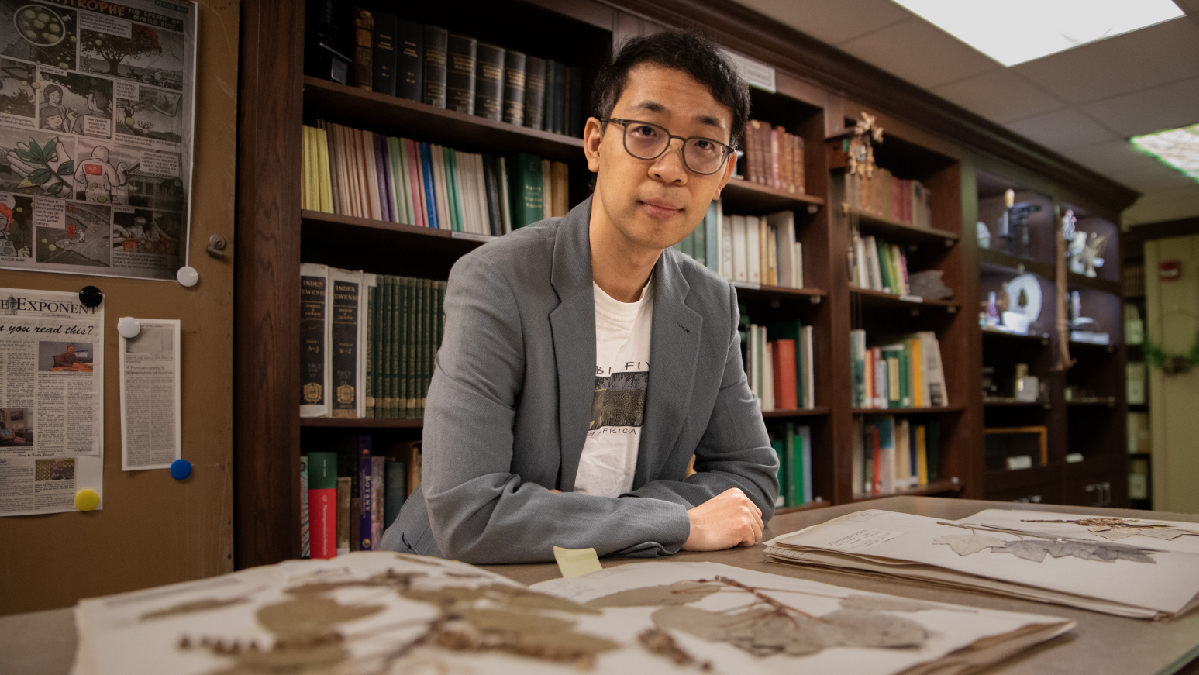Decoding Climate Change: Tracking Cottonwood Trees' Seasonal Shifts
04-24-2024

Dan Park, assistant professor of biological sciences
In the delicate balance of nature, where timing is everything, could the changing climate disrupt the fundamental rhythm of plant life?
That’s the inquiry driving Dan Park, assistant professor of biological sciences, and his dedicated team. Their mission: to delve into the enigmatic timing of biological events within plant life cycles. Park's research not only sheds light on the fascinating adaptation strategies of plants but also provides crucial insights into the impact of climate change on ecosystems.
At the heart of Park's research lies the study of plant phenology, the science of timing in the life cycles of plants, such as life history events like flowering or leaf out. These events happen at specific times of the year, and in many cases, plants use cues from their environments to time these events.
The impact of climate change on plant phenology has become increasingly evident in recent years. "One of the most easily observable effects of climate change has been that many plants have altered their phenology in response to the change in climate," notes Park. "For example, scientists have found that many plant species have been advancing their flowering times in response to warming temperatures."
Park's research focuses on understanding the patterns and nuances of these responses. In his most recent study, published in Proceedings of the National Academy of Science (PNAS) he addresses variation in the phenology of flowers of wind-pollinated diecious species. Diecious species, such as cottonwoods (Populus spp), have separate male and female individuals, making the synchrony of flowering among the sexes crucial for successful reproduction.
Using a combination of herbarium specimens and citizen science data from the National Phenology Network, Park and his team analyzed tens of thousands of observations to uncover patterns in the timing of flowering and leaf out in Cottonwood trees. "What we found was surprising," says Park. "Male Cottonwoods tend to flower earlier than females, and males are more responsive to changes in climate compared to females."
The implications of these findings extend far beyond the realm of academic curiosity. The effects of climate change on plant phenology are not uniform across species ranges. This variation, coupled with differences between sexes and phenological events, underscores the complexity of predicting the true impacts of climate change on ecosystems.
For Park and his team, the research is not just about understanding the mechanisms at play but also about informing conservation and management efforts. "In order to prepare for the effects of climate change on plant populations, we need to consider a multitude of factors," says Park. "From variations in phenological responses across species’ ranges to differences between their sexes, our findings highlight the need for a holistic approach to conservation."
As the world grapples with the far-reaching consequences of climate change, studies like Park's offer a glimmer of hope amidst the uncertainty. By unraveling the intricacies of plant phenology, researchers pave the way for more informed decision-making and a deeper understanding of the intricate web of life on our planet.
About the Department of Biological Sciences at Purdue University
Purdue Biological Sciences is the largest department in the Life Sciences at Purdue University. We are dedicated to pioneering scientific discoveries and transformative education at the cutting edge of innovation. From molecules to cells, from tissues to organisms, from populations to ecosystems - we bring together multiple perspectives, integrating across biological scales to advance our understanding of life and tackle the world’s most pressing challenges. Learn more at bio.purdue.edu/.
Writer: Alisha Referda, areferda@purdue.edu
Source: Daniel S. Park, danielpark@purdue.edu